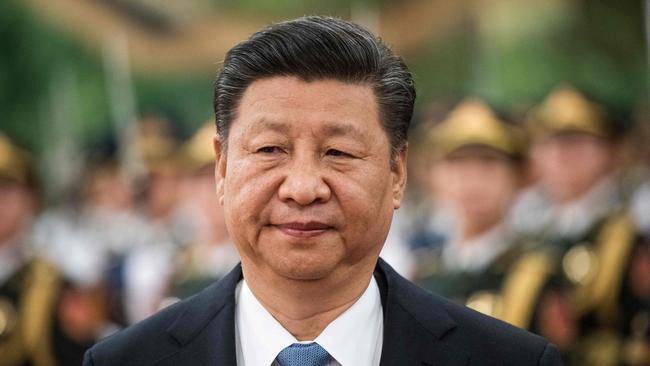US, China on collision course over supremacy, says ex-ambassador
The world has underestimated Xi Jinping’s determination to curb US power in the Asia-Pacific region, says Michael Thawley.

The world has underestimated Chinese President Xi Jinping’s determination to curb US power in the Asia-Pacific region and pull Taiwan into China’s orbit as confidence in the West’s political system crumbles, according to a former Australian ambassador to the US.
Michael Thawley, who was John Howard’s ambassador in Washington from 2000-2005 and secretary of the Prime Minister’s Department when Tony Abbott was leader, has warned that any trade deal signed between the US and China in coming weeks could only pause, not stop, a collision between the world’s two most powerful nations unless “the US gives up wanting to be a superpower”.
Now vice-chairman of US wealth giant Capital Group, Mr Thawley said the US-China relationship had been irrevocably up-ended by Mr Xi’s ascent to the Chinese presidency in 2013.
“The US-China economic relationship will never be the same again; this has been hard for people to accept,” he said at a private dinner in Sydney earlier this month.
His comments come amid escalating trade friction between the US and China, culminating in the US Justice Department’s claim last month that Chinese telecommunications giant Huawei “had offered bonuses to employees who succeeded in stealing confidential information from other companies”, among other charges.
“The two dynamics of strategic ambition and search for technology dominance intersect most acutely over Taiwan, which of all the troubled spots in Asia has to be the one that we should worry about most — more than North Korea and the South China Sea,” Mr Thawley said.
Donald Trump hinted last week that as a sign of goodwill the US could extend its March 1 deadline for resolution to the trade dispute with China, when it had promised to ratchet up tariffs from 10 per cent to 25 per cent for more than $US200 billion of Chinese imports.
“It may be at least a truce to postpone an escalation of the tariff war (but) any deal will not fix the US trade deficit that Mr Trump worries about,” Mr Thawley said, speaking at a forum of economists. “It won’t fix the underlying problems posed by tight party control and a state-sector-dominated economy that squeezes out the private sector and fails to provide a level playing field for foreign firms.’’
Mr Thawley said determination to contain China wasn’t unique to the US President or Republicans but shared by Democrats and the US business elite. “Their worry is not that Mr Trump is going to be too tough. Their worry is that he will claim victory with an inadequate deal. The reality is we’ve passed the point of peak globalisation,” Mr Thawley said, noting how traditionally free-market parties, such as the British Conservatives, were turning inward and shifting left. “What they really wanted to know was how could they introduce some of (Labour Opposition Leader Jeremy) Corbyn’s economic policies while looking as if they were still a free-market conservative party,” he said.
Last year the government rejected privately owned Hong Kong company Cheung Kong Infrastructure’s bid for gas distributor APA Group and banned Huawei from involvement in its 5G network, amid concerns the distinction between private and state-owned Chinese businesses was breaking down.



